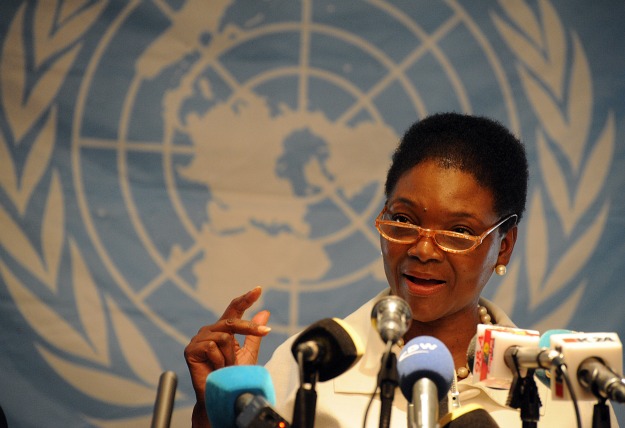DUBAI: Yemeni President Ali Abdullah Saleh is resisting popular demands for him to step down now, but will have to make good on promised reforms if he is to stem a nationwide tide of protests in which 12 people have been killed.
Saleh, 68, who has ruled his impoverished nation for 32 years, has pledged to quit in 2013 and not to hand power to his son. He has also promised to reform parliamentary election laws.
But opposition parties say they cannot accept his call for dialogue while the Sanaa government is using force to quell demonstrators energized by popular revolts against entrenched Arab autocrats in Egypt, Tunisia and elsewhere.
Yemeni political analyst Abdul-Ghani Al-Iryani said the violence used to crush unrest since Thursday was only bringing more people to the streets.
"We have passed the tipping point." "Now the youth revolution is here to stay. The only option for the regime is to try to understand and meet the grievances," he said, adding that he believed Saleh might respond soon.
Yet the president gave little ground on Monday.
"Yes to reforms, no to coups and seizing power through anarchy and killing," he told a news conference in Sanaa.
"If they want power they must reach it through the ballot box … You are calling for the regime to go — then get rid of it through the ballot box."
Saleh, who has in the past retracted promises to step down, has a credibility problem with many Yemenis, meaning only concrete measures will convince them he is serious about change.
"Yemenis want real reform, while the president’s statements have consisted of hot air. He has not yet grasped the lessons of Egypt and Tunisia," said opposition lawmaker Abdulmoez Dabwan.
"It has become totally unacceptable. The army is staffed with his relatives. Sovereign resources, especially oil and gas, are in his hands or his protégés’," Dabwan told Reuters.
Saleh, a US ally against a Yemen-based al Qaeda wing, has survived many challenges to his power in a lawless country riven by tribal and regional conflicts and awash with weaponry.
Protest momentum
But the surge of people power across the Arab world has galvanized sentiment against him. Demonstrations at first organized by opposition parties have gained their own momentum.
The southern city of Aden, where many people resent being ruled from the north, has seen the deadliest clashes. But poverty, corruption and soaring unemployment have fuelled protests across the Arabian Peninsula’s poorest state.
Saleh, a canny politician, has often exploited divisions in Yemen, where much of the south is in open revolt and only a fragile truce has calmed fighting with northern Houthi rebels.
"He said he would not run again, and he is playing on fears of chaos and divisions, but this is not enough," Dabwan said.
Yemen’s youthful population of 23 million may be coalescing around a common determination to get rid of Saleh.
"Tribal sheikhs from all over the country are pledging support for revolution, so he is clearly losing ground," Iryani said. "The youth revolution has reunified the country. Houthis, southerners and the rest of the country are all on one agenda. They are talking to each other and are trying to work together."
If Saleh promised serious reform, Yemenis would stay on the streets until he fulfilled his pledges, but this would no longer constitute a crisis and or be a cause for violence, Iryani said.
"There’s no need for the regime to use thugs and mercenaries as they did before and as (Muammar) Gaddafi is doing in Libya."
For all Saleh’s talk of dialogue, mistrust remains high, with many Yemenis doubting he is willing to cede any power.
"In Yemen and other countries, neither side is willing to back down. The opposition is asking for more than the regime is willing to give," said Shadi Hamid of the Doha Brookings Center.
Continuing protests could strain loyalties, perhaps leading to a critical point where ebbing confidence in Saleh’s survival in power prompts defections from the army and ruling coalition.
Al Qaeda concerns
Yemen is the focus of Western and Gulf Arab security worries that have intensified since 2009 when al Qaeda militants based there began launching attacks on US and Saudi targets.
Al Qaeda in the Arabian Peninsula, as the Yemen-based network is known, has so far failed to capitalize on the protest wave propelled by secular discontent, not Islamist militancy.
"For Riyadh, Yemen is vital for Saudi national security," said Khaled Fattah, at Scotland’s St Andrews University.
"Riyadh has always acted, and will continue to act, against any serious threat emerging from Yemen."
Any prospect of Saleh’s overthrow, which he did not view as imminent, would highlight "the worrisome fact that Yemen’s military lacks an institutional face" unlike the armies of Egypt and Tunisia. "It’s not a reflection of state power, but of the power of northern tribes," Fattah added.
Iryani said northern "feudal lords" — the powerbrokers of Saleh’s Sanhani clan and the sheikhs of the Hashed tribal federation to which the Sanhanis belong — were now facing off.
"The tribal base is now clearly divided. That could stir trouble for everyone, including civil war," he said, although he viewed a full-scale armed conflict as unlikely.
"I’d say Saleh could give enough concessions that would allow people to give him the opportunity to finish his term. If he doesn’t, it’s a matter of months, or even weeks."
Additional reporting by Khaled Oweis.



